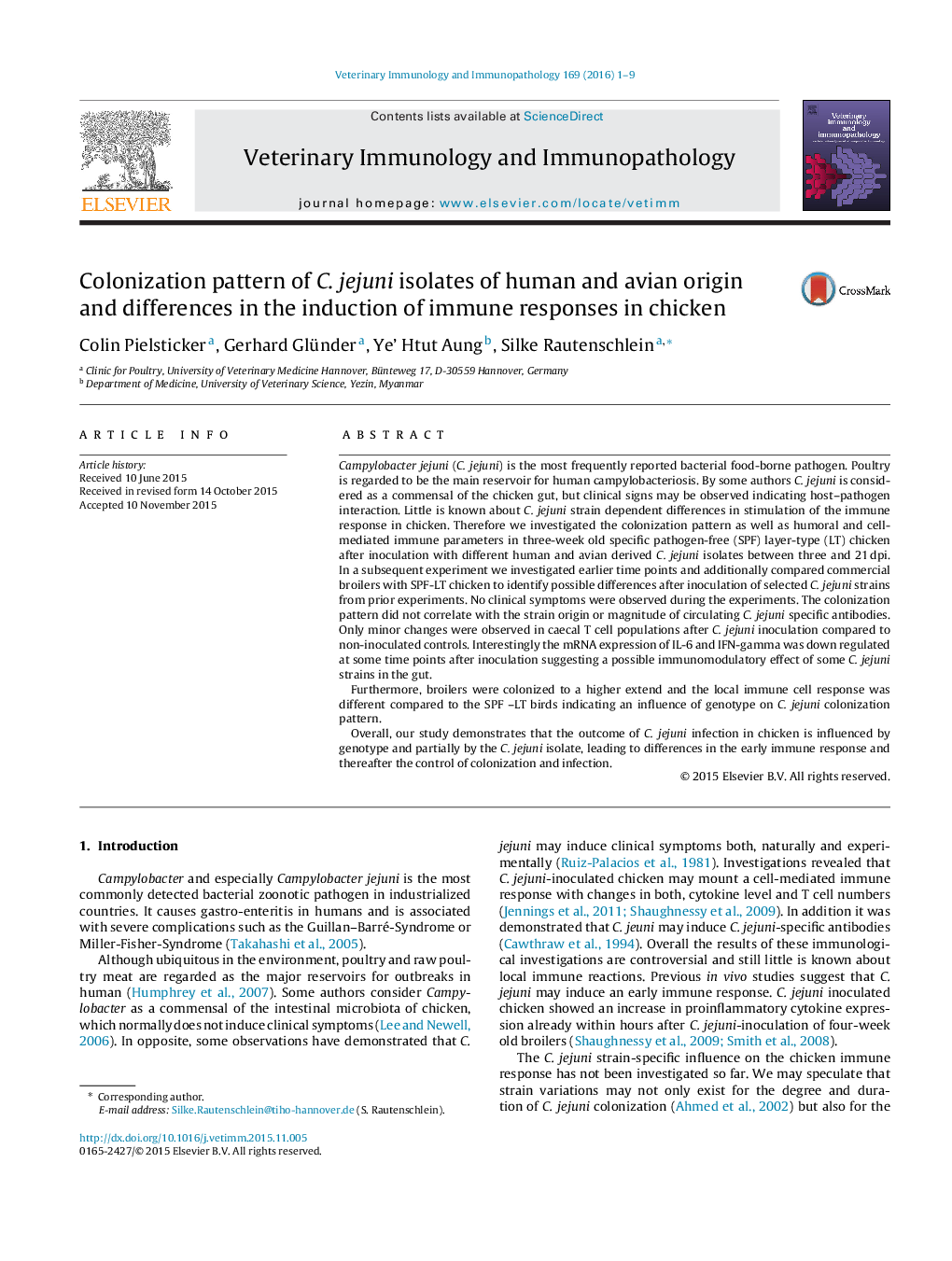| Article ID | Journal | Published Year | Pages | File Type |
|---|---|---|---|---|
| 5796619 | Veterinary Immunology and Immunopathology | 2016 | 9 Pages |
â¢Inoculation of chicken with different Campylobacter jejuni (Cj.) isolates.â¢Divers colonization pattern in caecum.â¢Broilers seem to be more susceptible than specific-pathogen free layer-type chicken.â¢Indication for a more Th2 dependent immune response.
Campylobacter jejuni (C. jejuni) is the most frequently reported bacterial food-borne pathogen. Poultry is regarded to be the main reservoir for human campylobacteriosis. By some authors C. jejuni is considered as a commensal of the chicken gut, but clinical signs may be observed indicating host-pathogen interaction. Little is known about C. jejuni strain dependent differences in stimulation of the immune response in chicken. Therefore we investigated the colonization pattern as well as humoral and cell-mediated immune parameters in three-week old specific pathogen-free (SPF) layer-type (LT) chicken after inoculation with different human and avian derived C. jejuni isolates between three and 21Â dpi. In a subsequent experiment we investigated earlier time points and additionally compared commercial broilers with SPF-LT chicken to identify possible differences after inoculation of selected C. jejuni strains from prior experiments. No clinical symptoms were observed during the experiments. The colonization pattern did not correlate with the strain origin or magnitude of circulating C. jejuni specific antibodies. Only minor changes were observed in caecal T cell populations after C. jejuni inoculation compared to non-inoculated controls. Interestingly the mRNA expression of IL-6 and IFN-gamma was down regulated at some time points after inoculation suggesting a possible immunomodulatory effect of some C. jejuni strains in the gut.Furthermore, broilers were colonized to a higher extend and the local immune cell response was different compared to the SPF -LT birds indicating an influence of genotype on C. jejuni colonization pattern.Overall, our study demonstrates that the outcome of C. jejuni infection in chicken is influenced by genotype and partially by the C. jejuni isolate, leading to differences in the early immune response and thereafter the control of colonization and infection.
